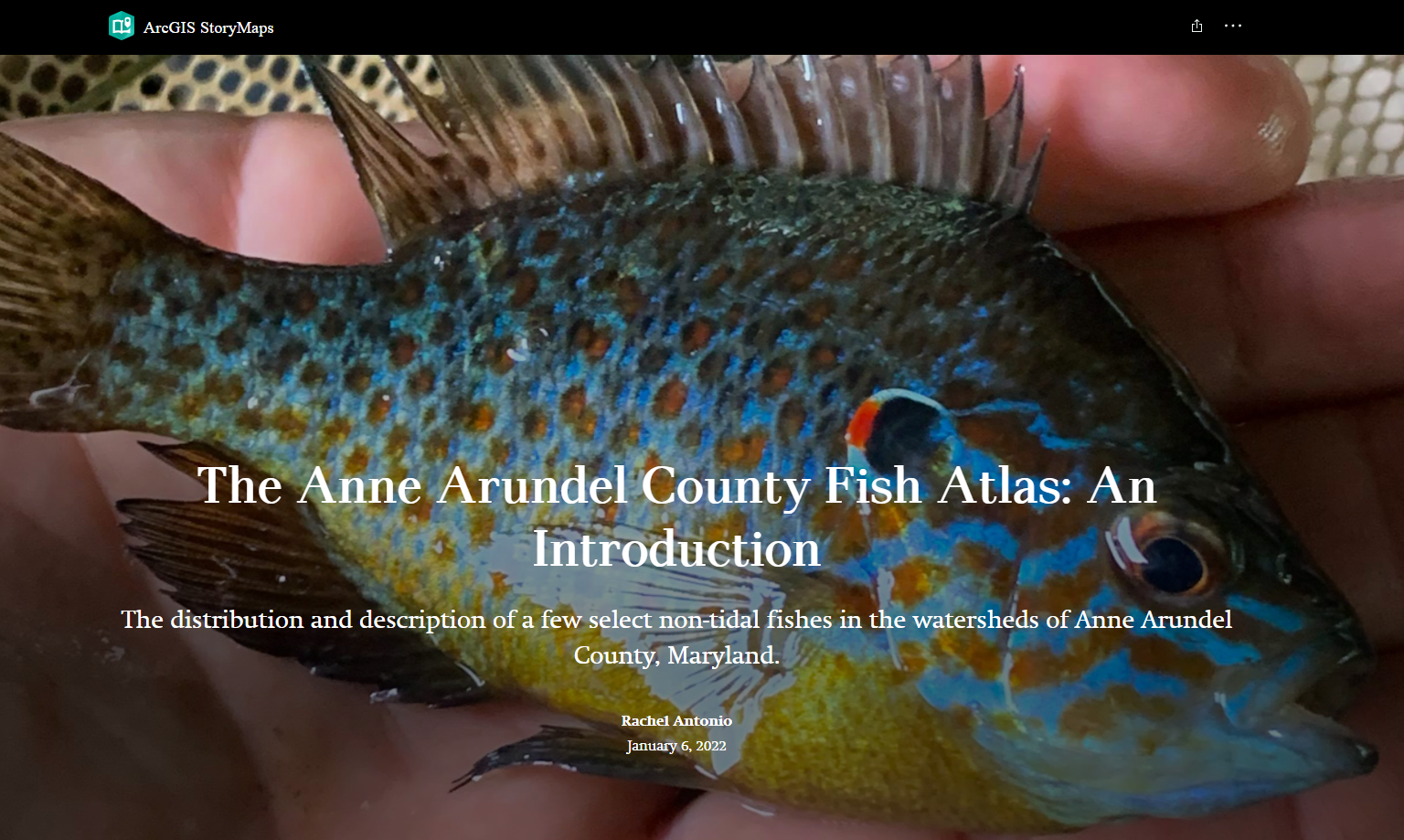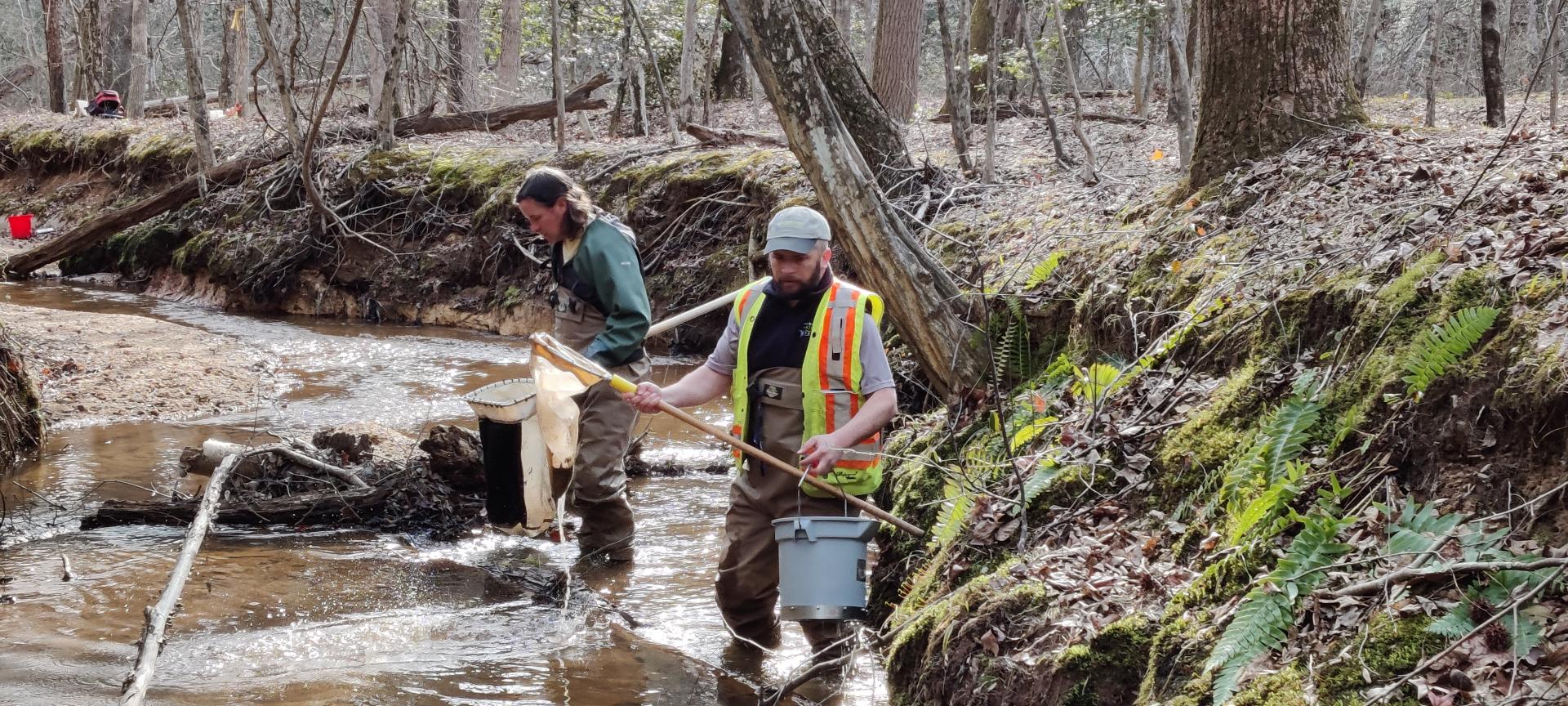Countywide Biological Stream Survey
In 2004, the Anne Arundel County Government began the Countywide Biological Stream Survey to characterize the health of the County’s streams and rivers. Biological assessments are a highly effective approach to understanding the overall health and quality of streams. By observing shifts in biological assemblages from their natural conditions, we can detect impairment in stream ecosystems.
Biological monitoring, however, is not intended to replace surface water monitoring or physical habitat assessment. Rather, this program is designed to augment such assessments. Combining the results of biological, chemical, and physical habitat assessment provides more comprehensive insight into overall resource health and the potential sources of impairment, allowing for prioritized implementation of more detailed, diagnostic investigations and restoration projects.
This program is based on the Maryland Department of Natural Resources Maryland Biological Stream Survey, scaled down to a County level. Using a rotating basin design, a subset of County watershed areas are assessed annually on a rotating basis, such that all major watersheds of the County are sampled once during a five-year period or ‘Round’. Sampling locations within each watershed are predetermined using a probability-based, stratified random sampling design. For more comprehensive information, please review the program design and other quality assurance documents in “Reports & Documents” below.
The first five-year monitoring period, Round 1, was completed between 2004 and 2008. The second monitoring period, Round 2, was initiated in 2009 and completed in 2013. Following the completion of Round 2, an evaluation was performed and significant changes were made to the program, including the addition of fish sampling, before starting Round 3. Round 3 was conducted from 2017 through 2021. The fourth and current monitoring period, Round 4, was initiated in 2023.
Long-Term Targeted Biological Monitoring
As part of the Biological Monitoring efforts, EAE staff routinely collect biological, habitat, and geomorphological data from local streams as part of a Long-term Targeted Biological Monitoring Program. The sample sites are located where stream restoration activities have occurred or are planned for the future, and these sites are monitored each year.
More details about this program can be found here: Long-Term Targeted Biological Monitoring
Data Collection
Aquatic biological monitoring data are shared between State and County entities to provide a holistic picture of ecosystem health in the County. Additionally, these data are utilized in the County's Bureau of Watershed Protection & Restoration to assess stream health during ongoing watershed studies and stream restoration assessments. Countywide Biological Monitoring Program data are also shared with the State in support of the County's NPDES MS4 Permit requirements.
Reports & Documents
The complete collection of annual reports for Rounds 1, 2, and 3 are available below. These annual reports summarize results for the subset of watershed areas sampled in a specific year and provide detailed descriptions of monitoring site assessments. Additionally, summary reports for Rounds 1, 2, and 3 are also available. These reports analyze conditions across all County watersheds sampled during each five-year Round.
Round 1 Reports:
Round 2 Reports:
Round 3 Reports:

Fish Atlas StoryMap
Learn about the fish species found in Anne Arundel County waterways during Round 3 of the Countywide Biological Monitoring Program.

